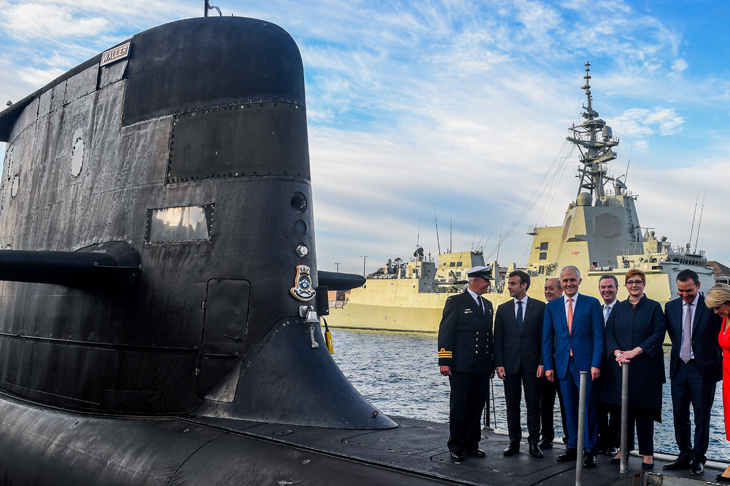In his panoramic survey of war through the ages, the eminent historian Azar Gat discerned two significant trends. To casual observers they may appear to defy empirical observation of the world we inhabit. However, Gat chose the title of his work advisedly. In War and Human Civilization Gat noted that ever since the defeat of Napoleon at Waterloo, conventional war between nation states has been in relative and steady decline. How can this be, when each evening our news bulletins are filled with images of precision munitions striking buildings, or of refugees – their meagre possessions on their backs – fleeing the carnage they once called ‘home’?
When I say that Gat chose the title of his work intentionally, his canvas is vast and his imagery vivid. He traces fighting among human beings back to our cave- dwelling ancestors who pillaged and killed for food, prestige and to kidnap women. Despite the wishful thinking of the Davos clique, war comes naturally to us. The life of man was solitary, nasty, brutish and short long before the birth of Hobbes. Yet, since the end of the Napoleonic Wars, states have avoided direct conventional warfare, preferring to achieve their aims through proxies. This was especially the case during the immediate aftermath of the second world war, when the threat of mutually assured nuclear destruction imposed restraint on both the United States and the Soviet Union. Proxy wars – and wars of so-called national liberation – proliferated. Africa spawned its share of genocidal tyrants from the Congo through Idi Amin to Robert Mugabe. Vietnam fell to communist domination.
Yet those global conflagrations of 1914 and 1939 were somewhat aberrant, despite their enormity and the scale of their casualties. In other words, while state on state warfare has become less prevalent than it was from the inception of the Westphalian settlement until the exile of Napoleon, when it does occur it is cataclysmic. So what?
Well, it was Gat who first observed the disturbing conditions prevailing in the global order since 2008. The past decade has witnessed the unchecked adventurism of Russia in Crimea and the Ukraine, the inexorable expansion of Chinese military influence into the South China Sea, and its increasingly repressive conduct in Hong Kong and strident bellicosity towards Taiwan. Such conditions, Gat concluded, bore alarming similarities to those prevailing in the 1930s. That was the last time that the global system attempted to accommodate two totalitarian capitalist powers. The second world war ensued. Of course, Gat wrote his treatise before the outbreak of the Wuhan virus ushered in conditions redolent of the Great Depression, which added another radically destabilising element to the geo-political rivalries of the 1930s.
Last year, the formidable Liberal MP, Andrew Hastie, compared the fraying of the current global order to the strategic climate of the 1930s, and was roundly scorned as a warmonger and an alarmist by the conspicuously virtuous. Most of them would prefer to fight the Army of Northern Virginia – or at least statues commemorating it – than to prepare to defend Australia against genuine foreign incursion in the multiple forms being employed against us by China. Hastie has felt what the Union General William T. Sherman termed ‘the hard hand of war’. His critics in the main were the keyboard warriors of the Left to whom Benjamin Law is an authentic Australian hero, and the greatest threat to our liberty is Rupert Murdoch rather than Xi Xinping. The defining characteristics of Australia’s cosmopolitans, paradoxically, are a lack of worldliness plus cultural insularity. The world in which their moral relativism and decadence are celebrated is passing into history. We are on the edge of an abyss, where the great liberal democratic project of the past three centuries may well be replaced by totalitarianism.
So, when Prime Minister Scott Morrison launched the latest strategic update last week, and noted how disturbed he was by the current disconcerting similarities to the period leading up to the second world war, I was impressed. Few realised the seismic shift in geo-political posture to which Morrison has committed this nation. The suite of force structuring initiatives he announced were overdue. They are also innately defensive. Viewed jointly, which is how the ADF leadership will plan to employ them, they are designed to impose heavy transaction costs on any power seeking to interfere with our vital sea lanes of communication, particularly the Straits of Malacca. Our air and maritime strike capabilities are to be enhanced to allow us to hit harder at greater distance from Australia.
The package hedges against two significant concerns. The first is domestic. Namely, the exorbitant cost and feckless time over-runs of the replacement for the Collins Class submarine. That is the abiding legacy of those two granite figures of Australian military history, Malcolm Turnbull and Christopher Pyne. It will undermine Australia’s force structure and constrain our strategic options for decades. It is a public policy failure of epic proportions. The PM has moved to provide more lethality to manned and unmanned aerial platforms as well as to improve the detection capabilities of land-based over-the-horizon radar. These measures, and the plans to introduce hypersonic and ballistic missiles, offset to some extent the absence of a credible submarine capability for well over a decade.
Secondly, Morrison is hedging against relative American decline. The much-vaunted pivot to the Indo-Pacific has remained rhetorical rather than substantive. Through the location of joint facilities Australia and the United States remain inextricably linked. However, China has achieved its aim of denying ready access to the South China Sea and the Taiwan Straits to US carrier battle groups. Freedom of navigation exercises merely highlight the relative decline of American reach into the Indo-Pacific. In 1996, Bill Clinton humiliated China by dispatching two carrier groups to the Taiwan Straits during a crisis there. The PLA could not even locate them. Out of such ignominy was born their current strategy of Anti-Access/Area Denial, which has made forward basing of American maritime assets inside the Second Island chain impossible. Against this chilling reality Scott Morrison has decided to act. His intentions are sound. It is to be hoped that we maintain the national resolve to sustain the funding of these measures. That will entail ignoring those who would prefer the money be spent on more ‘comedians’ on the ABC reviling this nation’s heritage. It is worth defending. At any price.
Got something to add? Join the discussion and comment below.
Get 10 issues for just $10
Subscribe to The Spectator Australia today for the next 10 magazine issues, plus full online access, for just $10.
You might disagree with half of it, but you’ll enjoy reading all of it. Try your first month for free, then just $2 a week for the remainder of your first year.














Comments
Don't miss out
Join the conversation with other Spectator Australia readers. Subscribe to leave a comment.
SUBSCRIBEAlready a subscriber? Log in